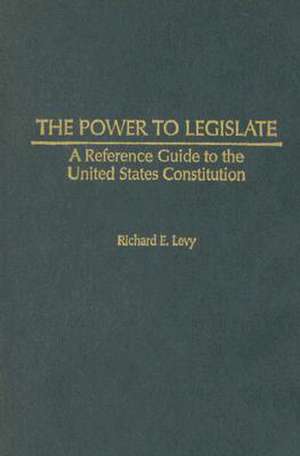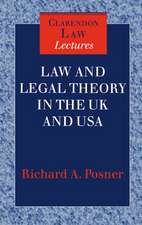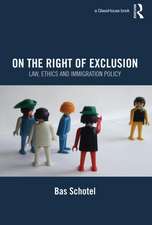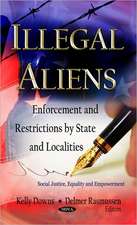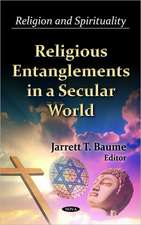The Power to Legislate: A Guide to the United States Constitution: Reference Guides to the United States Constitution
Autor Richard E. Levyen Limba Engleză Hardback – 29 iul 2006 – vârsta până la 17 ani
Din seria Reference Guides to the United States Constitution
- 19%
 Preț: 458.81 lei
Preț: 458.81 lei - 24%
 Preț: 460.93 lei
Preț: 460.93 lei - 28%
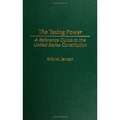 Preț: 438.07 lei
Preț: 438.07 lei - 27%
 Preț: 438.67 lei
Preț: 438.67 lei - 28%
 Preț: 461.69 lei
Preț: 461.69 lei - 28%
 Preț: 461.18 lei
Preț: 461.18 lei - 28%
 Preț: 436.32 lei
Preț: 436.32 lei - 28%
 Preț: 461.60 lei
Preț: 461.60 lei - 38%
 Preț: 439.85 lei
Preț: 439.85 lei - 27%
 Preț: 345.23 lei
Preț: 345.23 lei - 24%
 Preț: 463.88 lei
Preț: 463.88 lei - 24%
 Preț: 458.48 lei
Preț: 458.48 lei - 28%
 Preț: 436.92 lei
Preț: 436.92 lei - 24%
 Preț: 463.38 lei
Preț: 463.38 lei - 28%
 Preț: 438.00 lei
Preț: 438.00 lei - 28%
 Preț: 435.97 lei
Preț: 435.97 lei - 27%
 Preț: 514.74 lei
Preț: 514.74 lei - 23%
 Preț: 567.65 lei
Preț: 567.65 lei
Preț: 436.92 lei
Preț vechi: 603.72 lei
-28% Nou
Puncte Express: 655
Preț estimativ în valută:
83.62€ • 86.97$ • 69.03£
83.62€ • 86.97$ • 69.03£
Carte tipărită la comandă
Livrare economică 15-29 aprilie
Preluare comenzi: 021 569.72.76
Specificații
ISBN-13: 9780313322846
ISBN-10: 0313322848
Pagini: 238
Dimensiuni: 156 x 235 x 22 mm
Greutate: 0.47 kg
Editura: Bloomsbury Publishing
Colecția Praeger
Seria Reference Guides to the United States Constitution
Locul publicării:New York, United States
ISBN-10: 0313322848
Pagini: 238
Dimensiuni: 156 x 235 x 22 mm
Greutate: 0.47 kg
Editura: Bloomsbury Publishing
Colecția Praeger
Seria Reference Guides to the United States Constitution
Locul publicării:New York, United States
Notă biografică
Richard E. Levy is Professor of Law at the University of Kansas School of Law, where he joined the faculty in 1985. Since joining the faculty at the University of Kansas, Levy has published extensively on issues relating to constitutional law and government institutions and was a Postlewaite Research Fellow from 1996-1999.
Cuprins
SERIES FOREWORD by Jack StarkFOREWORD by Richard A. PosnerACKNOWLEDGMENTSIntroduction: Triangulating the Federal Legislative PowerThe "Other" Powers of CongressIn Search of the Federal Legislative PowerNotesPart I: History of the Federal Legislative PowerThe Constitutional Transformation of CongressCongress Under the Articles of ConfederationCongress Under the ConstitutionConclusionFederal Legislative Power in the Constitutional OrderThe Bank Controversy and the Meaning of the Necessary and Proper ClauseLegislative DelegationInternal Operations of Congress and Inherent Legislative AuthorityThe Antebellum EraDual Sovereignty Theory and Mutual ExclusivityInherent Legislative PowersConstraints on the Deliberative PowersConclusionThe Civil War and ReconstructionSecession and the Sovereignty of StatesReconstruction and Federal PowerDual Sovereignty and the Scope of the Reconstruction AmendmentsLaissez Faire Constitutionalism and Federal Legislative PowerRestricting the Scope of Legislative PowerLegislative DelegationsDeliberative Powers and Laissez Faire ConstitutionalismThe New Deal Crisis and the Demise of Laissez Faire ConstitutionalismReserved Powers, Nondelegation, and the New DealThe Switch in Time That Saved NineFederal Legislative Power as PlenaryStructural Limits in the Era of Plenary Federal Legislative PowerConclusionThe "New" Federalism and the Future of Federal Legislative PowerThe New Federalism and Federal Legislative PowerThe No-Commandeering RuleState Sovereign ImmunityLegislative Delegations and the Rehnquist CourtThe State of Federal Legislative PowerNotesPart II: Analysis of the Federal Legislative PowerCollective Action and the Federal Legislative PowerThe Dynamics of Collective ActionGovernment as Collective ActionThe Legislative Power in Collective Action PerspectiveCollective Action Among StatesFederalism and the Dual CollectiveImplications for the Federal Legislative PowerNecessary and Proper LawsThe McCulloch Test and the Enumerated PowersOverarching QuestionsEndsAppropriate MeansProhibited MeansNecessary and Proper Laws and the Federal Legislative PowerLegislative DelegationDelegation and Separation of PowersThe Intelligible Principle TestFactors Affecting the Intelligible Principle TestThe Nondelegation Doctrine and the Federal Legislative PowerDeliberative PowersDeliberative Powers and the Deliberative ProcessDeliberative Powers in Collective Action PerspectiveIntrinsic Limits on Deliberative PowersExternal LimitationsInstitutional Prerogatives and the Limits of Deliberative PowersNotesConclusionBIBLIOGRAPHIC ESSAYTABLE OF CASESINDEX
Recenzii
Levy has written an excellent work that is part of a series on constitutional law and follows a standard arrangement: a brief history of the subtopic, a lengthy analysis of the current state of the law on that topic, a bibliographic essay, a table of cases, and an index. The author focuses on the extent of the power of Congress, particularly the limitations of legislative power granted by the Constitution, as well as judicial precedent set by the Supreme Court. He concentrates on three issues: the legislative authority conferred by the necessary and proper clause of Article 1, the authority of Congress to delegate power to courts and executive agencies, and the power to investigate. Following an introduction, the book is divided into two parts: History of the Federal Legislative Power and Analysis of the Federal Legislative Power. Sections range from The Antebellum Era and The New Deal Crisis and the Demise of Laissez Faire Constitutionalism to Legislative Delegation and Deliberative Powers. Recommended. All levels.
Levy works on the complex issue of the separation of powers, focusing on the extent of the power of Congress, including the legislative authority conferred by the necessary and proper clause of Article I of the Constitution, the power of the legislature to relegate power to courts and executive agencies, and the power it exercises without explicit authorization in the Constitution, such as the power to investigate. He analyzes the history of federal legislative power from the time of the Articles of Confederation to the new federalism, collective action and federal legislative power, necessary and proper laws such as the ^IMcCulloch^R test, the role of delegation in the separation of powers including the intelligible principle test, and deliberative powers and their external limitations. He includes a table of cases.
Levy works on the complex issue of the separation of powers, focusing on the extent of the power of Congress, including the legislative authority conferred by the necessary and proper clause of Article I of the Constitution, the power of the legislature to relegate power to courts and executive agencies, and the power it exercises without explicit authorization in the Constitution, such as the power to investigate. He analyzes the history of federal legislative power from the time of the Articles of Confederation to the new federalism, collective action and federal legislative power, necessary and proper laws such as the ^IMcCulloch^R test, the role of delegation in the separation of powers including the intelligible principle test, and deliberative powers and their external limitations. He includes a table of cases.
